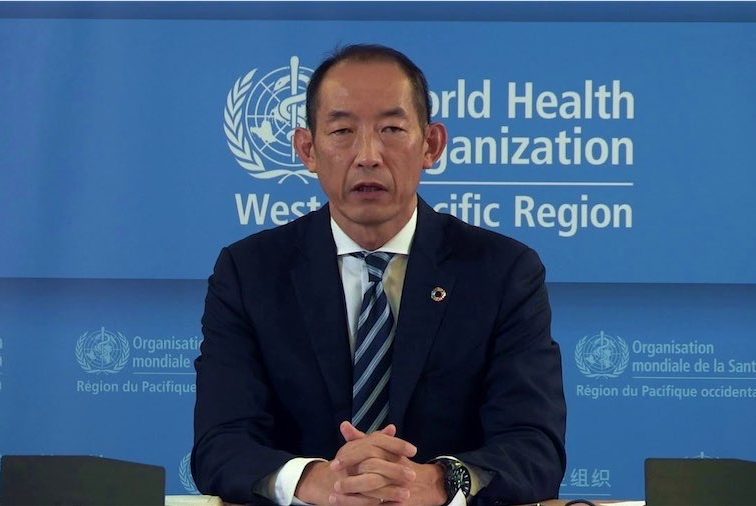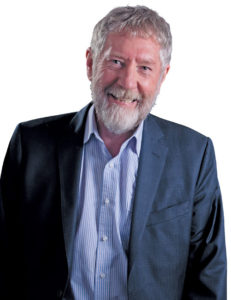
“If our health system comes under serious pressure from an increase in COVID-19 cases, it can be expected there will be a significant reduction in hospital access and in elective surgery,” says political columnist MICHAEL MOORE.
LOCKDOWN is very inconvenient. Most Canberrans, whether they agree or not, recognise that the reason behind the approach is primarily twofold: to reduce sickness and death, and to ensure our health systems are not overwhelmed.

The single message from across jurisdictions is that coming out of lockdown requires high rates of vaccination. Figures of 70 per cent, 80 per cent and 90 per cent have been bandied about by different interests. Each of those percentages are dependent on a wide range of other preventive activities.
The additional factors that are tied to each of these percentages make it much more difficult to set a concrete path. The political considerations ought not be underestimated. Setting a plan and then not delivering is likely to bring far more criticism and undermine confidence than not having a plan at all.
This might explain why it took until late September, and seven weeks into the lockdown, for Chief Minister Andrew Barr to release his plan for a way out of the lockdown.
It does explain to some extent why Barr came under attack on the government’s approach to COVID-19 by the Liberal Opposition Leader, Elizabeth Lee.
Following Premier Dan Andrews’ announcement of a plan to take Victoria out of lockdown, she raised the question of why the ACT cannot do the same.
In a recent press release Ms Lee argued: “Canberrans were rightly disappointed at the lack of a plan released by the ACT government”.
She went on to argue that the “Chief Minister and the Health Minister repeatedly said that they cannot provide more details because there are too many uncertainties”.
She did concede, “most Canberrans understand that a plan or roadmap would be influenced by case numbers and vaccination rates and that any plan put in place may need to be adjusted”.
She then tapped into the frustration that is felt by many Canberrans: “To have no plan at all as to how Canberra will safely transition out of lockdown is mind boggling.”
Some lessons can be learnt from successful vaccination to control highly infectious measles. In March, 2014, Australia was declared by the World Health Organization to be free of endemic measles.
However, non-immune travellers returning to Australia did bring the disease back in 2017 when there were 84 cases. Protection from measles has required vaccination coverage rates of around 95 per cent of the whole population from infants to the elderly.
For full protection against the similarly infectious Delta variant of COVID-19, we can expect a comparable story. However, very few governments are talking about full protection.
At least Andrew Barr has been warning about over-simplified interpretations of the Doherty Institute’s early modelling. The 70 per cent figure, that is so often used by Prime Minister Scott Morrison, would mean a heavily strained ACT Health system and certainly increases in the number of cases and deaths.
If our health system comes under serious pressure from an increase in COVID-19 cases, it can be expected there will be a significant reduction in hospital access and in elective surgery. A substantial increase in waiting times could be expected. Those who are dependent on the public health system would be the most disadvantaged.
There is another consideration regarding the spread of COVID-19. The World Health Organization’s Western Pacific director, Dr Takeshi Kasai, provided a warning when speaking at the Public Health Association of Australia Public Health Conference recently.
He argued that while vaccines are not being distributed widely amongst the most vulnerable in low and middle-income countries, there is a possibility of further variants beyond Delta. Such variants could be more infectious and be more devastating.
Dr Takeshi did thank Australia for the role that it played in the region. Australian medical emergency teams have been deployed when surges have occurred in places such as Papua New Guinea and Fiji. Additionally, help has been provided with training in the region around such areas as health promotion, disease prevention and contact tracing.
Focusing on priority groups such as the elderly and health workers will be a key part of dealing with the pandemic. However, access to sufficient vaccines and the willingness of the vast majority of populations to be vaccinated in Australia and across the world will remain the key to success in dealing with the COVID-19 virus.
Michael Moore is a former member of the ACT Legislative Assembly and an independent minister for health. He has been a political columnist with “CityNews” since 2006.
Who can be trusted?
In a world of spin and confusion, there’s never been a more important time to support independent journalism in Canberra.
If you trust our work online and want to enforce the power of independent voices, I invite you to make a small contribution.
Every dollar of support is invested back into our journalism to help keep citynews.com.au strong and free.
Thank you,
Ian Meikle, editor





Leave a Reply